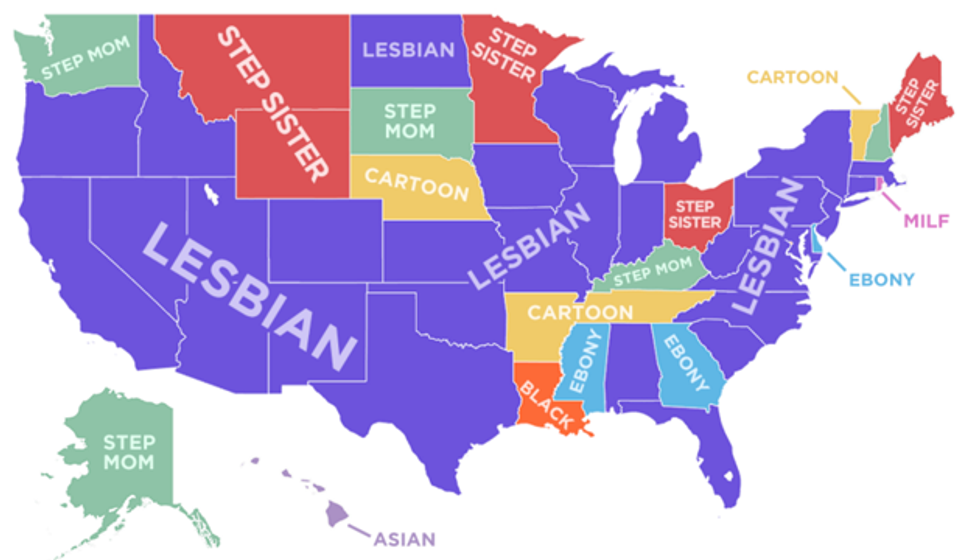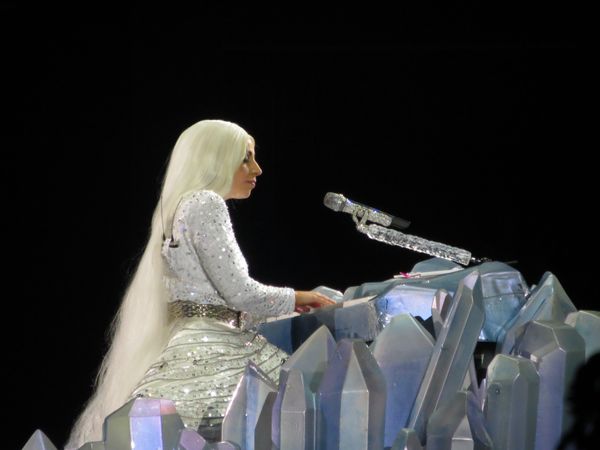One of the most positive steps forward society has made in the last decade is acceptance of the LGBTQ community and alternative gender and sexual identities. With it, however, has also come the negative side effects of the appropriation and commodification of such identities. In hopes of staying relevant with trends, or retaining a unique identity, identifying as LGBTQ or using the support of the community to further a career have become almost common, and you might not have even noticed.
Queerbaiting which can also be described as "gayfishing," similar to catfishing or "blackfishing" where influencers darken their skin and adopt black culture online for more followers or likes, has slowly been increasing in popularity. Queerbaiting specifically is a trend that has become popular in media wherein same-sex orientation characters and relationships are hinted at in media in order to draw in an LGBTQ audience, but are never formally acknowledged or incorporated into the story. Such examples can be seen in shows such as Glee, Riverdale, Sherlock etc.
Beyond just queerbaiting in literature and film however, real life "gayfishing" is on the rise. In a time where individuals are still persecuted, criminalized, and even killed for their sexual orientation, some are adopting a faux LGBTQ identity in order to draw in an audience. As being gay and queer are more openly accepted, especially on the internet and in millennial and gen x communities, it has almost become popular and unique to not be straight, which, unfortunately, means it also has become commodified.
The problem is especially prevalent among young celebrities and internet personalities who are trying to increase their relatability with a younger audience. Last week, Billie Eilish released her new song "wish you were gay." From the title, one would easily assume the song is from the point of view of a gay woman lamenting unrequited feelings from another woman. However, the song is actually from the point of view of a straight woman lamenting unrequited feelings from a man, who she wishes was gay so that she would not feel bad about his lack of interest. While the song might just be Eilish speaking from her heart and expressing the emotions she was feeling at that point in her life, by the tilting of the song, gay and lesbian individuals would be attracted to it expecting it to relate to their own past experience.
Eilish received major backlash from the LGBTQ community for the song, who accused her of using them as a prop for her career.
She responded to the criticism saying the song was meant to be a playful take on her own rationalization of rejection, but audiences did not appreciate this response. While she might have had innocent motives for the content of the song, the obvious implications of its title and lyrics could not have been a mystery to either her or her production team. Wishing someone were gay to rationalize your own rejection diminishes the experiences of gay and lesbian individuals and turns their identity into a tool. It robs gay and lesbian individuals of their agency and relegates them to merely an alternative to a straight individual just not being interested.

Another recurring culprit of "gayfishing" is Hollywood's own Timothee Chalamet. Chalamet is a 23-year-old actor who is well known, not only for his popular roles in films such as Lady Bird and Hostiles, but is also more notable as America's sweetheart, a term known more among the online community as "the internet's white boy of the year." Chalamet is most known for his role in Call Me By Your Name, having played the young gay love interest in the film.
While Chalamet has not publicly commented on his sexuality, having played the role of a gay man, many assumed he took a role which reflected his own sexuality. However, Chalamet has had multiple romantic relationships with women in the past few years, which has led many to conclude that he is straight. While no one can assume his sexuality, his portrayal of a gay man in an LGBT movie caused him to become an icon in the gay community. While he has never claimed to be gay, by playing a gay character, he used the gay community in order to advance his career without being an actual representative of them. While the role could have been played by a gay individual, the iconic character in a movie about gay men, one of the few in existence, that became a paragon of cinema for the LGBTQ community, was cast for a straight man. Thus the money and acclaim of portraying a man impacted by a non-traditional sexual orientation was given to a man who does not experience that same oppression in real life.
Even outside of popular media, gayfishing and queerbaiting are becoming more and more common. You might often hear a woman scorned by men say "I'm just going to start dating women, I don't want to date men anymore" or "I wish I was gay." While they might be stating actual truths, and they may actually be gay or bisexual individuals, oftentimes these women are straight women using the identity of gay women as a prop for their own humor. These phrases are often said as a joke, and rarely do the women actually ever begin dating women instead of men. All this, while real gay and LGBTQ identifying women might still live in fear of expressing their sexuality.
Gay women are still oppressed for their identity and are often rejected by the straight community for their orientation, however, straight women have no fear of such oppression and thus can freely state "I'm gay now" or "I wish I were gay" without understanding the implications of such a statement. Outside of this, many straight individuals, particularly on the internet, hint towards gay identities or orientations while still maintaining a straight lifestyle and enjoying the social benefits of having a traditionally conforming sexuality. While they might appreciate the LGBTQ community and even pretend to be a part of it, in real life they are still able to be protected under a straight identity and don't need to worry about their lifestyle being rejected and oppressed by society.
Online communities have long been a safe space for the LGBTQ community to express their identity among others similar to them, however, these individuals turn communities because they are not able to live true to their identity outside of them. Gayfishers and LGBTQ appropriating individuals don't have to worry about this. They can enjoy the uniqueness and acceptance of a non traditional identity online without needing to turn to the community to escape oppression in their day to day life. While the LGBTQ community is very accepting of even those who are not sure of their identity or identify as allies, straight and gender conforming individuals have a habit of occupying a space that was not set aside for them while depriving LGBTQ individuals of this same luxury.
Beyond straight women claiming they are gay as a joke in response to straight men, the problem is even more prevalent in porn. Lesbian porn is well known to be produced for the enjoyment of primarily and exclusively straight men. This extends just beyond queerbaiting and gayfishing, and turns lesbian relationships and identities into merely a performance for straight men. The women participating in lesbian porns are often straight-identifying women, and while they might enjoy the act of gay sex, it might not necessarily be their primary orientation. Beyond this, they do not have to fear oppression outside of the porn industry due to their traditional sexualities. While women engaging in gay sex outside of a male-centered porn industry might be derided and ridiculed, when such an act is tailored for male enjoyment, suddenly it not only becomes socially acceptable, it becomes desirable. WLW (women loving women) as a performance and as a commodity of straight men have long been the only socially acceptable form of gay sexuality and again deprives gay women of agency over their own sexuality.

The gay, queer, and gender non-conforming community have enjoyed a rapid increase in acceptance and growth in the past decade but there are still many steps to be taken. Increased acceptance of gay identities does not make it trendy or cool to be gay. Many individuals are still openly oppressed for their orientation and straight people should be wary of enjoying the benefits of the LGBTQ community while not having the same entitlement to do so as those who belong to it. Increasing, LGBTQ individuals are being pushed out of their own community while straight individuals occupy the space left behind. Being gay is not trendy, and gayfishing does not make non-traditional sexualities more acceptable, it trivializes the experience of these individuals and tokenizes their identity. Stop turning gay and lesbian sexualities into a personality trait, or a prop, or a performance, and validate us as real living individuals.



















